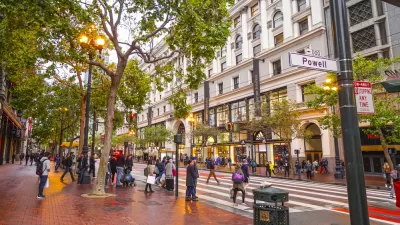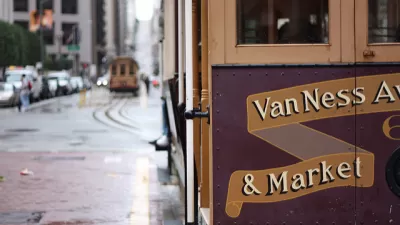Local ordinances typically try to protect residents from excess noise. In San Francisco, though, a city official is proposing policies that would protect the right of musical acts to keep rocking despite the encroachment of new neighbors.

As in many cities, many of San Francisco's small music clubs are located in marginal neighborhoods, often industrial or commercial areas, like Dogpatch or the Mission, where bands can turn up the volume without fear that they will offend neighbors. But with a housing crisis in full swing and the gentrification of formerly undesirable neighborhoods, music venues now have more neighbors within earshot, and many of them are cranky.
Bands and venue owners are pushing back against noise complaints, contending that the music scene is a vital part of San Francisco's culture. Supervisor London Breed agrees. She has sponsored an ordinance that seeks to smooth relationships between venues and residents. The ordinance would require developers to work with music venues before construction begins, to notify prospective residents of the proximity of music clubs, and to consider including mitigation measures in their project. The ordinance would prevent the forced shut-down of any venue that follows city rules, no matter how much neighbors may complain.
A petition in support of Breed's legislation has garnered 3,000 signatures.
"The soul of this city is just changing so fast, whether it's a Google bus or whatever else," Jocelyn Kane, executive director of the Entertainment Commission, told SF Weekly. "It's different now from what we saw in the '90s, with the amount of money, and the sustained amount of change. This legislation is important because it forces project sponsors to come talk to us and get our signoff."
SF Weekly reports that 2012 study from the city's Office of Economic Analysis found that San Francisco's Nightlife Industries generated roughly $4.2 billion in 2010.
FULL STORY: Noise Ordinance: London Breed Legislation to Preserve Live Music & Nightlife

Alabama: Trump Terminates Settlements for Black Communities Harmed By Raw Sewage
Trump deemed the landmark civil rights agreement “illegal DEI and environmental justice policy.”

Study: Maui’s Plan to Convert Vacation Rentals to Long-Term Housing Could Cause Nearly $1 Billion Economic Loss
The plan would reduce visitor accommodation by 25% resulting in 1,900 jobs lost.

Why Should We Subsidize Public Transportation?
Many public transit agencies face financial stress due to rising costs, declining fare revenue, and declining subsidies. Transit advocates must provide a strong business case for increasing public transit funding.

Paris Bike Boom Leads to Steep Drop in Air Pollution
The French city’s air quality has improved dramatically in the past 20 years, coinciding with a growth in cycling.

Why Housing Costs More to Build in California Than in Texas
Hard costs like labor and materials combined with ‘soft’ costs such as permitting make building in the San Francisco Bay Area almost three times as costly as in Texas cities.

San Diego County Sees a Rise in Urban Coyotes
San Diego County experiences a rise in urban coyotes, as sightings become prevalent throughout its urban neighbourhoods and surrounding areas.
Urban Design for Planners 1: Software Tools
This six-course series explores essential urban design concepts using open source software and equips planners with the tools they need to participate fully in the urban design process.
Planning for Universal Design
Learn the tools for implementing Universal Design in planning regulations.
Smith Gee Studio
Alamo Area Metropolitan Planning Organization
City of Santa Clarita
Institute for Housing and Urban Development Studies (IHS)
City of Grandview
Harvard GSD Executive Education
Toledo-Lucas County Plan Commissions
Salt Lake City
NYU Wagner Graduate School of Public Service





























